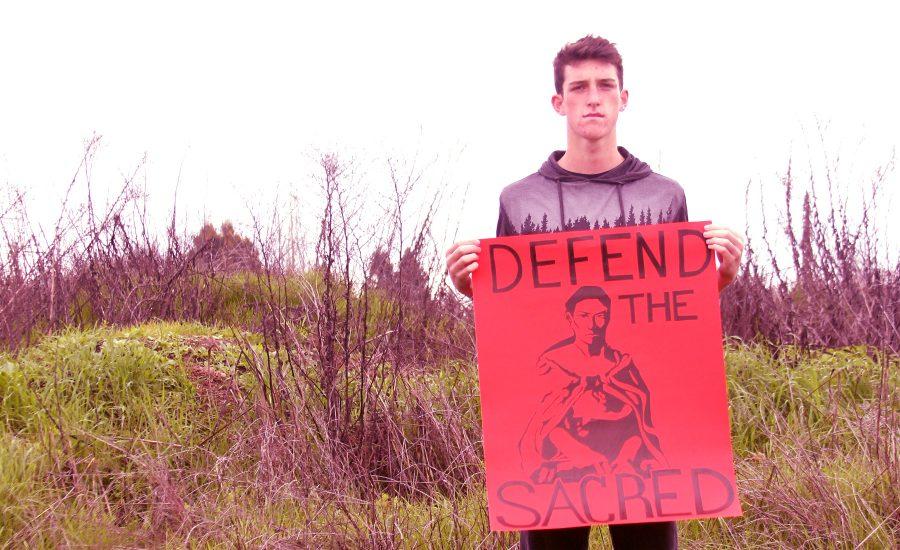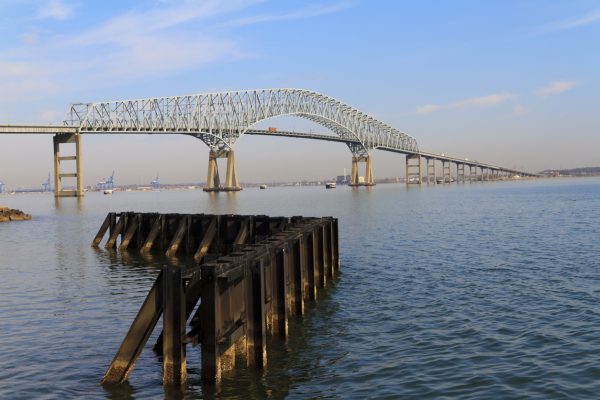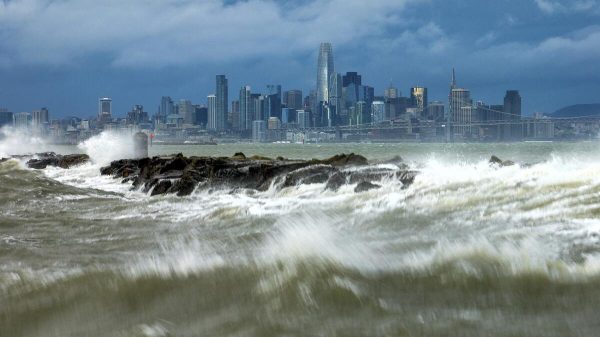Student for Standing Rock
Photo by Katie Marr
Over Thanksgiving break, while most people were eating their weight in food or fighting for amazing deals, thousands of individuals traded celebrating the holiday for protesting the Dakota Access Pipeline. Located in Standing Rock, North Dakota, the pipeline would send 570,000 barrels of crude oil daily from North Dakota to Illinois, covering 1,170 miles. The pipeline is encroaching on Native American land and poses an environmental threat to the water supply in the Mississippi River. This land is rightfully the Native American’s by treaty; the police protecting the oil company’s interest there is the equivalent of invading a sovereign nation on behalf of an oil company. Over fall break, the plan for the protest was to build a bridge that would span from Oceti Camp to Turtle Island, an ancient burial ground, and hold a prayer there.
However, this protest was more intense than expected, as there was a heavy police force. During the training for the protest, people held fake pepper spray and mace and pretended to pull away individuals to arrest so they would know what to expect during the actual protest, but the reality was much more frightening. Junior Jakob Manning attended the protests over fall break and relayed his experiences at the protest.
“At first, it was all well. We built bonfires, held prayers, and sang songs while people started building the bridge. All of a sudden, a police car shows up on the top of a hill and starts using a megaphone to tell us to stop. [They were] saying that they wanted this day to be peaceful, but if it comes down to it they will use force. We continued to build the bridge. We laid the bridge down on the water as more police officers kept coming and coming and coming. Many people ― I didn’t personally ― crossed the bridge to the other side and started holding a prayer while police officers used water cannons to intimidate the protesters,” said Manning.
But the protesters weren’t deterred; instead, they continued to fight. Despite the frightening circumstances, Manning was inspired by the courage of the protesters. He shared his feelings about the overall experience and what he did.
“Reflecting back on what I did personally, I feel like in the moment I was doing as much as I felt that I could, [but] I wish there was more that I could’ve done. I think that if you ask any other person they would say the same thing. There’s so much stuff going on, and especially with the upcoming month there’s gonna be a lot of violence happening. On December 5, the police have announced they’re going to be clearing the camps, which means they’re going to take bulldozers and run through the Oceti, which is the biggest camp there, [and it] has thousands of people staying there. Tents, teepees, yurts, everything; so much land, so much history, so much culture, and they plan on clearing all of that out which is going to really be heartbreaking. Hearing that information makes me really sad and makes me wish there was more that I could do. It makes me want to go back,” said Manning.
Luckily for the Native Americans, on December 5, the pipeline has been disallowed from crossing below Lake Oahe, at least until an investigation into environmental dangers has been performed, according to many sources such as The Washington Post, CNN, and VICE. The ruling was made by the Army Corps, the Department of Justice, the Department of the Interior, and President Obama himself. Unfortunately, the war is not yet won, as President-elect Trump has vowed to support pipelines such as this one. Moreover, Trump’s top CIA pick, Mike Pompeo, is heavily supported by the oil company Koch Industries, who donated $357,300 to his campaigns when he was running for U.S. Representative for Kansas (according to McClatchy DC). Government teacher Lisa Cain shares her views on the protest and its results.
“The result is temporary, as there will be the option to change leadership by replacing the head of the Army Corps. Trump [would have] to issue an Executive Order, or [the] funds for the project [would not] be appropriated. [But as for the protest as a whole], nonviolent protests are the heart of our democracy. Freedom to assemble and freedom of speech is essential to the exchange of ideas. Violent or riotous protests cloud the issue and cause people to focus on the destructive action and not the issue,” said Cain.
With the “heart of our democracy” still in progress, Manning might have the opportunity to go back to Standing Rock and fight on, hopefully aiding in the efforts to kill the pipeline once and for all.












